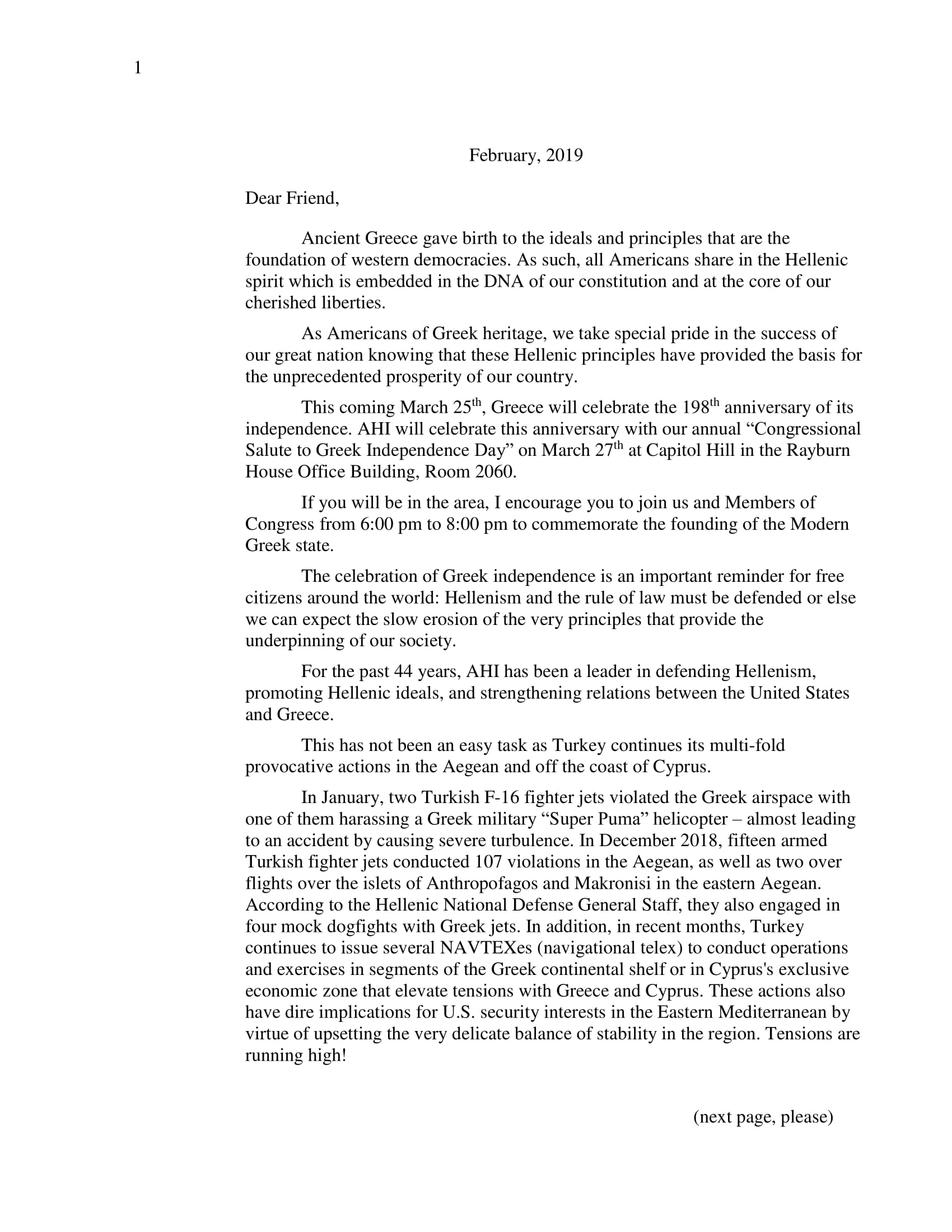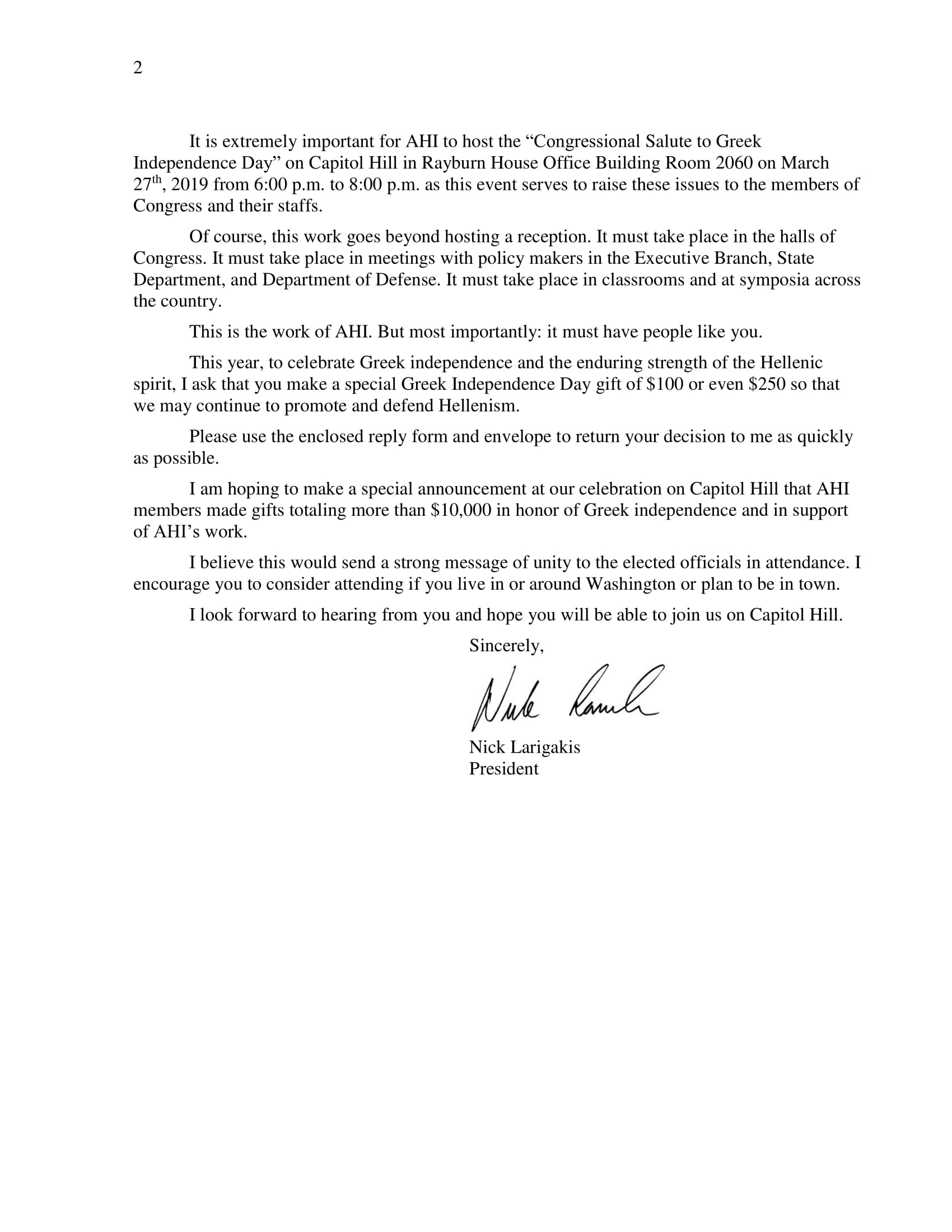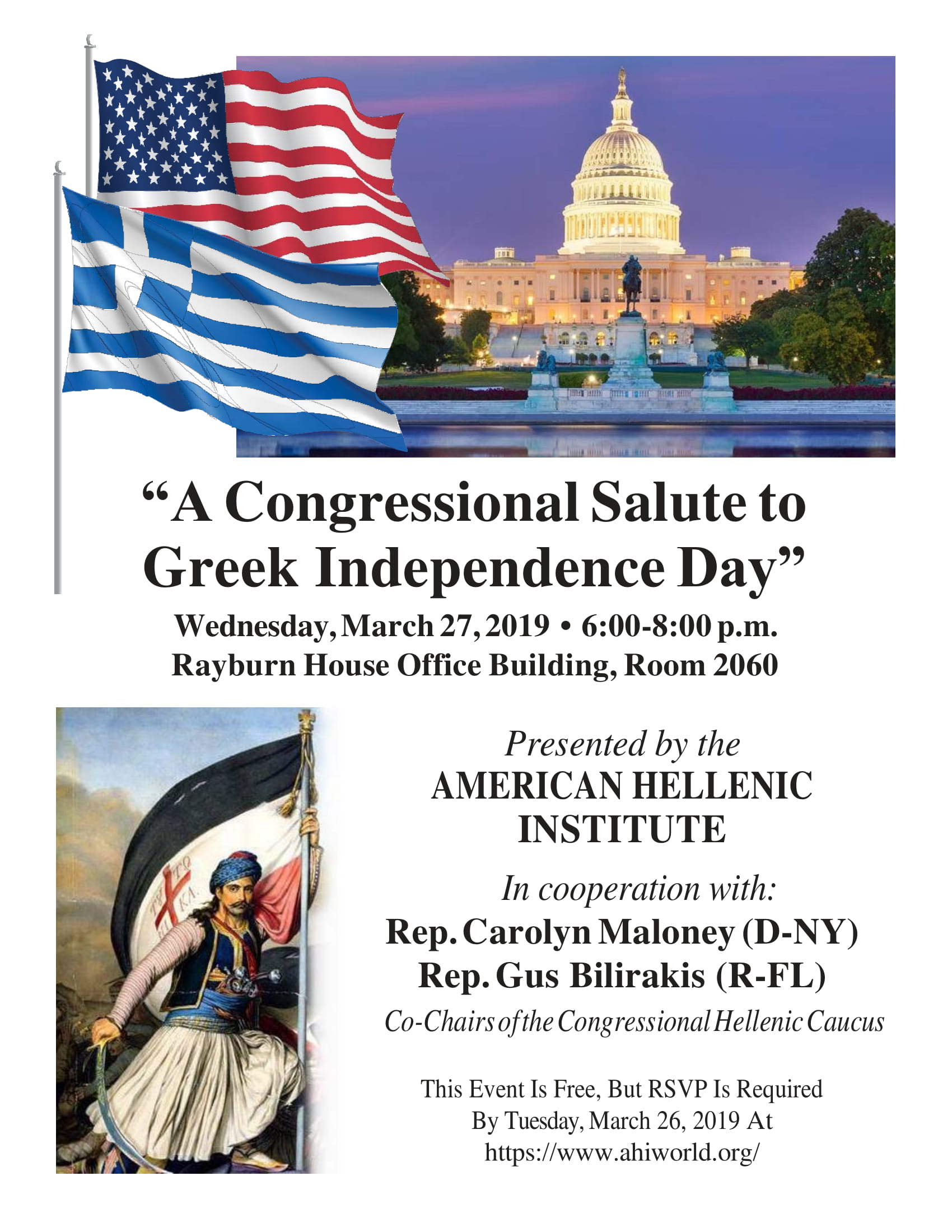NO. 8
WASHINGTON, DC — The American Hellenic Institute (AHI) welcomes the Trump administration’s decision to terminate Turkey’s preferential trade status as a country under the Generalized System of Preferences (GSP) program.
“AHI has long maintained in its testimony and advocacy to Congress its opposition to any assistance programs to Turkey, including those that provide most favored nation trade benefits, because of Turkey’s numerous, ongoing violations of the rule of law,” AHI President Nick Larigakis said. “Although we do welcome the Administration’s decision as a positive step, we note the decision does not affect all Turkish exporters and was not made because of its violations of the rule of law. Further, we hope President Trump sees it through after the sixty-day notice as he has the ability to withdraw the notice.”
In congressional testimony, AHI has cited Turkey’s illegal occupation of Cyprus with 35,000 troops and 180,000 illegal Turkish settlers; its suppression of religious freedom of the Ecumenical Patriarchate, seizure of its property, and closure of Halki Seminary; and its violations of Greece’s territorial integrity and airspace as examples of Turkey’s countless violations of the rule in law.
According to a statement issued by the Office of the United States Trade Representative, Turkey no longer complies with the statutory eligibility criteria.
“Turkey’s termination from GSP follows a finding that it is sufficiently economically developed and should no longer benefit from preferential market access to the United States market,” the USTR stated in its announcement.
The Administration cited Turkey’s increase in Gross National Income (GNI) per capita, declining poverty rates, and export diversification, by trading partner and by sector, as evidence of its higher level of economic development.
Turkey’s designation under the GSP program allows duty-free entry of an estimated 2,000 products such as: auto components, industrial valves, and textile materials that affects an estimated $1.7 billion in Turkish exports, according to a Congressional Research Service report.
The USTR statement added that by statue the change to Turkey’s trade status may not take effect until “at least 60 days” after Congress and the Turkish government is notified. The decision is enacted by a Presidential Proclamation.










